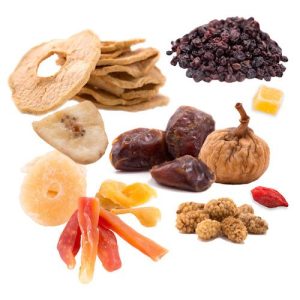Raisins — those tiny, wrinkled, sun-dried grapes—may look unassuming, but they are packed with nutrients and natural goodness. While often dismissed as just a snack or an ingredient in baked goods, raisins can have profound effects on your health when incorporated into your daily routine. It is often recommended to eat them in moderation for their numerous health benefits.
But what actually happens when you eat raisins every day for a month? Let’s explore the physical, metabolic, and even emotional changes you might experience.
Improved Digestive Health
One of the first and most noticeable effects of eating raisins daily is improved digestion.
Here is Why?
Raisins are high in dietary fiber, especially insoluble fiber, which helps bulk up your stool and promotes regular bowel movements. A single handful (about 30 grams) contains approximately 1.6 grams of fiber.
What to Expect:
- Reduced constipation and bloating
- Regular, smoother bowel movements
- Improved gut microbiota over time
Soaked raisins, in particular, are easier to digest and may enhance this effect even more.
 Steady Energy Levels
Steady Energy Levels
Raisins are a natural source of glucose and fructose, making them an excellent source of quick energy without the crash that comes from processed sugar.
Here is Why?
The natural sugars in raisins are absorbed slowly due to their fiber content, which helps maintain stable blood sugar levels.
What to Expect:
- Reduced sugar cravings
- More sustained energy during the day
- Fewer afternoon energy crashes
If you’re physically active or suffer from low energy, adding raisins to your morning meal or as a pre-workout snack can be beneficial.
Enhanced Iron Levels and Reduced Fatigue

Raisins are naturally high in iron, a key mineral involved in transporting oxygen throughout the body. Many people—especially women—suffer from mild iron deficiency without even realizing it.
Here is Why?
Just 100 grams of raisins contain around 1.9 mg of iron, which can help combat anemia when consumed regularly.
What to Expect:
- Better oxygen circulation
- Reduced tiredness and fatigue
- Improved concentration and physical endurance
Pairing raisins with a vitamin C source (like an orange) helps your body absorb iron more effectively.
Healthier Skin and Hair

Believe it or not, eating raisins daily can promote clearer skin and healthier hair.
Here is Why?
Raisins contain antioxidants, including phenolic compounds, that help protect your skin from oxidative stress. They’re also rich in vitamins B, E, and potassium, all of which are essential for skin and hair health.
What to Expect:
- A brighter, clearer complexion
- Reduced occurrence of acne (especially with soaked raisins)
- Stronger, shinier hair
Hydration and antioxidants are key factors here. Soaked raisins work even better as they release more bioavailable nutrients.
Better Heart Health

Eating raisins consistently can support cardiovascular health in multiple ways.
Here is Why?
- Potassium in raisins helps regulate blood pressure.
- Their fiber content can reduce LDL (“bad”) cholesterol levels.
- Polyphenols in raisins have anti-inflammatory effects that benefit the heart.
What to Expect:
- Stabilized blood pressure
- Lower cholesterol (when combined with other dietary changes)
- Reduced risk of heart disease over the long term
In fact, studies have shown that eating raisins daily can reduce systolic blood pressure in people with prehypertension.
Stronger Bones
Raisins are a plant-based source of calcium and boron, both of which are important for bone density and joint health.
Here is Why?
Boron aids in calcium absorption and prevents bone loss—especially important for postmenopausal women and aging adults.
What to Expect:
- Improved joint flexibility
- Reduced bone aches or pain (especially in the knees or lower back)
- Better bone strength over time
While raisins aren’t a substitute for calcium-rich foods, they can definitely support your skeletal health as part of a balanced diet.
Blood Sugar Considerations

Many people ask, “Aren’t raisins high in sugar?” The answer is yes—but it’s natural sugar accompanied by fiber and nutrients, which changes the equation.
What to Know:
While raisins have a moderate glycemic index, their fiber helps slow the absorption of sugar, making them a better choice than candy or processed sweets.
What to Monitor?
- Individuals with type 2 diabetes or insulin resistance should consult their doctor or nutritionist.
- Stick to no more than 30 grams per day (roughly 2 tablespoons) to avoid spikes.
If eaten mindfully and in appropriate portions, raisins can actually help curb sugar cravings and support healthier snacking habits.
Detoxification and Liver Support
Raisin water has become a trendy wellness drink—and there’s some merit behind it.
Here is Why?
Raisins, especially when soaked, may stimulate liver enzymes and improve liver function due to their antioxidants and fiber content.
What to Expect with soaked raisins or raisin water:

- Enhanced natural detoxification
- Reduced bloating
- Clearer skin
To try raisin water: soak 25–30 raisins overnight in a glass of water, drink the water and eat the raisins in the morning on an empty stomach for a week.
Tips to Maximize the Benefits
- Choose quality: Opt for unsweetened, and preservative-free raisins when possible.
- Practice moderation: A small handful (25–30 grams) daily is enough.
- Soak overnight: Soaked raisins are easier on the stomach and increase nutrient availability.
- Pair wisely: Combine with nuts, seeds for satiety or with citrus for better iron absorption.
Any Downsides?
Like anything, too much of a good thing can be problematic.
What to Watch For:
- Excessive intake may lead to weight gain due to calorie density.
- People with sensitive digestion may initially experience bloating.
- Raisins stick to teeth—good dental hygiene is a must.
Final Thoughts
Eating raisins every day for a month can yield noticeable improvements in digestion, energy, skin health, and even emotional well-being. They’re a natural multivitamin from nature—easy to incorporate, budget-friendly, and deeply nourishing.
However, like all nutritional changes, individual results may vary. If you have specific health conditions, it’s always best to consult with a registered dietitian or your healthcare provider before making dietary adjustments.
So, next time you reach for a snack, consider this: a few raisins a day might just be your body’s small but mighty ally on the path to better health.


 Steady Energy Levels
Steady Energy Levels
 What Are Antioxidants?
What Are Antioxidants?





